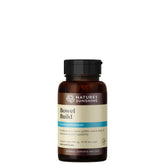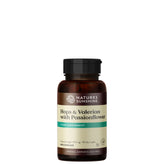For many people, weight tends to fluctuate due to a variety of factors, some within our control and others beyond it. While losing or gaining weight can be relatively straightforward for some, maintaining a healthy weight over the long term often proves to be the greater challenge. Effective weight management is crucial for overall health and wellbeing, contributing to a fitter, healthier, and happier life, allowing you to fully enjoy life's experiences.
At the core of a healthy lifestyle are regular exercise and a balanced diet. Ensuring your body receives the essential vitamins, minerals, and nutrients it needs is a fundamental aspect of any weight management strategy. Whether your goal is to tone up or reach a specific weight loss target, the lifestyle changes you implement will significantly impact your success.
‘Yo-yo’ and Fad Diets
Embracing a healthier approach to weight management can be both empowering and uplifting. Instead of getting caught in the cycle of yo-yo dieting and quick-fix fad diets, which can be frustrating and hard on your body, there's a more positive path to long-term success.
Yo-yo dieting, where you lose and regain weight repeatedly, often happens when you follow overly restrictive diets that are tough to stick with. These diets might seem promising at first, but they can slow down your metabolism, making it easier to gain weight once you return to your regular eating habits. This cycle can feel discouraging, but there's a brighter way forward.
Fad diets, known for their extreme and often unbalanced plans, might offer quick results, but they usually don't provide the nutritional foundation needed for lasting health. While you might see fast initial weight loss, it's often temporary and can be hard to maintain. The good news is that by choosing a more balanced and sustainable approach, you can avoid the pitfalls of these diets and set yourself up for long-term success.
What is Metabolism and How Does it Affect Weight?
Metabolism is the set of chemical processes in your body that convert food into energy for essential functions like breathing and cell repair. Your metabolic rate, or how quickly you burn calories, impacts weight management: a high metabolism helps with weight loss or maintenance, while a slow metabolism can lead to weight gain if calorie intake exceeds expenditure.
Metabolism naturally slows with age due to reduced muscle mass, hormonal changes, and less physical activity. To boost metabolism naturally, you can build muscle through strength training, engage in regular aerobic exercise, eat protein-rich foods, stay hydrated, and get 7-9 hours of sleep per night. Eating smaller, frequent meals, consuming spicy foods, and managing stress through techniques like meditation can also help maintain a healthy metabolic rate.
Sugar and The Risks
Most foods and drinks contain sugar, which enhances flavor and provides energy. However, excessive intake of refined or processed sugars can lead to headaches, energy crashes, and long-term health issues such as obesity, heart disease, and type 2 diabetes. Added sugars, unlike natural sugars found in fruits, offer no nutritional benefits and come in many forms, including sucrose, glucose, and high-fructose juices.
Reducing your intake of added sugars can lower the risk of chronic conditions, support insulin sensitivity, and benefit brain health by avoiding cognitive decline linked to high sugar consumption. Opting for a balanced diet rich in fruits, vegetables, whole grains, and healthy proteins not only helps maintain a healthy weight but also reduces the risk of chronic diseases. By focusing on nutrient-rich foods and cutting down on added sugars, you can enhance your overall health and well-being, supporting both body and mind. It's important to read food labels carefully, as foods with 22.5g or more of sugar per 100g are high in sugar, while those with 5g or less are low.
The Low-Fat Fallacy: Why Less Isn’t Always More
Low-fat diets have been widely promoted as a key to weight loss and better health. However, this approach can be misleading and counterproductive. Not all fats are created equal. Healthy fats, such as those found in avocados, nuts, seeds, and fatty fish, play crucial roles in our bodies, including supporting brain function, hormone production, and nutrient absorption.
When you eliminate fats from your diet, you might find that the foods you consume to replace them are not necessarily healthier. Many low-fat products are loaded with sugar and artificial additives to compensate for the flavor lost when fat is removed. This can lead to an imbalance in your diet and may even contribute to weight gain and metabolic issues.
The Role of Stress and the Nervous System
Chronic stress and an overburdened nervous system can significantly impact your weight and overall health. Stress triggers the release of cortisol, a hormone that can promote fat storage, particularly in the abdominal area. Additionally, stress can lead to emotional eating, where food becomes a coping mechanism rather than nourishment.
To counteract these effects, it's important to incorporate stress management techniques into your daily routine. Practices such as mindfulness, meditation, and adequate sleep can help regulate your stress levels and support a healthier weight.
Nutrient Deficiency and Toxicity: The Hidden Threats
Many people today are unknowingly battling nutrient deficiencies and high levels of toxicity. Modern diets often lack essential vitamins and minerals due to the consumption of highly processed foods. These foods not only provide little in terms of nutrition but also contain various additives and preservatives that can contribute to toxicity in the body.
Eating a diet rich in whole, organic foods can help address these issues. Organic produce is less likely to contain harmful pesticides and chemicals, and it often has higher nutrient density compared to conventionally grown foods. By choosing local and seasonal foods, you are more likely to consume produce that is fresher and more nutrient-rich.
Hydration: The Foundation of Health
Hydration is another crucial component of effective weight management and overall health. Water supports nearly every function in your body, from digestion to detoxification. Adequate hydration helps maintain a healthy metabolism and supports the efficient breakdown of fats and nutrients.
Drinking healthy water from natural springs, bottled mineral water, or mineral-rich filtered water is essential for maintaining optimal health and well-being. Natural spring water is often rich in essential minerals and free from harmful contaminants, offering a pure, refreshing hydration source. Similarly, bottled mineral water, carefully sourced and preserved, provides a convenient way to access these health benefits. For those who prefer filtered options, mineral-rich filters can enhance tap water by removing chemicals, pollutants, and unfiltered hormones that can contribute to weight issues and toxicity.
Avoiding regular tap water is wise, as it often contains additives like chlorine and fluoride, as well as potential hormone residues, all of which may disrupt the body's natural balance and contribute to long-term health concerns. Prioritising clean, mineral-rich water supports detoxification, enhances energy levels, and promotes overall vitality.
Real Food vs. Processed Foods: Back to Basics
In our fast-paced world, processed foods have become a staple for many, but they come with a cost. These foods often have a long list of ingredients, many of which are artificial or synthetic. Instead, focus on consuming real, whole foods that resemble the diet of our ancestors. Foods that are minimally processed and come from the earth are generally more nutritious and supportive of overall health.
Look for foods with fewer ingredients, ideally ones that you can pronounce and recognise. Fresh fruits, vegetables, proteins, high quality organic hormone free, grass fed meats, and whole grains should form the cornerstone of your diet.
Understanding Weight Management in Women
Weight management in women is influenced by a blend of hormones and metabolism, each playing a unique role. Estrogen helps shape fat distribution, often leading to curves in the hips and thighs, while progesterone can affect hunger levels during the menstrual cycle. Insulin, which manages blood sugar and fat storage, plays a role too, and maintaining balance here is key for managing weight. Thyroid hormones, responsible for regulating metabolism, can impact how efficiently the body burns calories. While women generally have a lower basal metabolic rate (BMR) than men, understanding and working with these hormonal and metabolic factors can help in finding effective and personalised approaches to achieve and maintain a healthy weight. Embracing these insights can lead to more successful and enjoyable weight management strategies.
Seed cycling is a great natural approach that involves consuming specific seeds during different phases of the menstrual cycle to help balance hormones and promote regular periods. Typically, during the first half of the cycle (follicular phase), you consume ground flaxseeds and pumpkin seeds, which help to support estrogen production. In the second half (luteal phase), sunflower seeds and sesame seeds are recommended to help boost progesterone levels. This cyclical consumption of seeds is used to help provide essential nutrients and healthy fats that may help regulate hormonal fluctuations, alleviate symptoms of PMS, and ultimately support a more regular menstrual cycle. By aligning your diet with your cycle, seed cycling can promote hormonal harmony and enhance overall reproductive health.
Healthy Lifestyle, Healthy Diet
Maintaining a healthy weight can be achieved through various natural strategies. Here are some effective methods:
- Eat Whole Foods. Focus on consuming whole, unprocessed foods like fruits, vegetables, whole grains, proteins, and healthy fats. These foods are rich in nutrients and help you feel full longer.
- Portion Control. Pay attention to portion sizes to avoid overeating. Using smaller plates, bowls, and utensils can help control portions naturally.
- Stay Hydrated. Drinking plenty of water throughout the day can help control hunger and boost your metabolism. Thirst is often mistaken for hunger, leading to unnecessary snacking when a glass of water might be all you need. Staying hydrated is essential for metabolising fat effectively. Aim for 1.5 to 2 liters of clean quality water daily to stay properly hydrated and support your body's needs.
- Regular Physical Activity. Incorporating regular exercise, such as walking, cycling, swimming, or strength training, can help maintain a healthy weight and boost overall well-being.
- Mindful Eating. Practice mindful eating by slowing down, savoring your food, and paying attention to hunger and fullness cues. This can help prevent overeating.
- Increase Fiber Intake. Foods high in fiber, like vegetables, fruits, legumes, and whole grains, promote satiety and support digestive health.
- Limit Added Sugars and Processed Foods. Reduce the intake of sugary drinks, snacks, and processed foods that are high in empty calories and often contribute to weight gain.
- Get Adequate Sleep. Poor sleep can disrupt hunger hormones and lead to weight gain. Aim for 7-9 hours of quality sleep per night.
- Plan Meals. Planning meals ahead of time can help ensure you make healthier choices and avoid the temptation of unhealthy foods.
- Manage Stress. Chronic stress can lead to emotional eating and weight gain. Practice stress-reducing techniques like meditation, yoga, or deep breathing exercises. Stress disrupts fat burning by elevating cortisol levels, which increases appetite, reduces insulin sensitivity, and promotes fat storage.
- Cook at Home. Preparing meals at home allows you to control ingredients and portion sizes, leading to healthier eating habits.
-
Eat More Vegetables. Incorporate more veggie meals into your diet. Vegetables promote a reduced risk of chronic diseases and can also aid in weight management.
- Cleanse with the seasons to reduce toxicity, lose weight and align with natures rhythms to support overall health. Check out our blog here that shares in detail how to Thrive By Detoxing With The Seasons
By adopting these natural strategies, you can promote a healthier diet and maintain a healthy weight sustainably.
Nature's Supplements for Weight Management
Enhancing your weight management routine with carefully selected supplements from Lily & Loaf and Nature's Sunshine significantly improves your overall health and well-being by boosting metabolism, burning fat, curbing appetite, and providing essential nutrients, helping you feel fitter, healthier, and happier on your journey to a healthier you.
Nature’s Sunshine 3-6-9 Flaxseed Oil
Nature's Sunshine Omega 3-6-9, derived from flaxseed oil, offers a range of health benefits due to its rich content of essential fatty acids (EFAs). Flaxseed oil is an abundant source of these vital nutrients, including Omega-3, -6, and -9 fatty acids. Each soft gel capsule provides 1000 mg of 100% unrefined flaxseed oil, ensuring you receive a potent dose of EFAs without any chemicals or additives. The capsules are carob-coated for light resistance, preserving the oil's purity and effectiveness.
Essential fatty acids are crucial for maintaining overall health and wellness. They serve as building blocks for cell membranes, enabling cells to absorb optimal nutrition and eliminate waste. EFAs are also integral to brain health, cardiovascular function, and the nervous system. Although these nutrients are found in flax seeds, marine fish, and green leafy vegetables, some individuals may not consume enough of these foods, making supplementation beneficial.
Omega-3 fatty acids, in particular, are known for their role in enhancing metabolic rate, improving insulin sensitivity, and reducing inflammation. This helps in weight management and blood sugar control. Flaxseed oil stands out as a superior source of Omega-3s compared to fish oil, containing nearly twice as much of these beneficial fats. Additionally, flaxseed oil includes lignans and linoleic acid—another essential fatty acid—further enriching its health benefits. Scientific studies have linked Omega-3 consumption with a reduced risk of coronary heart disease, highlighting the importance of these nutrients for cardiovascular health.
Incorporating Nature's Sunshine Omega 3-6-9 into your daily routine provides essential nutrients that support various aspects of health, from improved metabolic function to enhanced heart health. By supplementing with flaxseed oil, you ensure you’re meeting your body’s needs for these vital fats and promoting overall well-being.
Nature’s Sunshine Spirulina
Spirulina is a blue-green algae that grows in warm, alkaline fresh waters around the world, and is recognised as one of the most complete food sources known. Originally consumed by the Aztecs, it was later researched by NASA in the 1960s as a dietary supplement for astronauts due to its impressive nutrient profile. Spirulina is a type of cyanobacteria that produces energy from sunlight via photosynthesis, much like plants. This ‘superfood’ stands out due to its incredibly high protein content, which ranges from 60-70%, making it the highest protein content of any natural food. It is also a rich source of vitamin B12 and vitamin E, alongside a full spectrum of minerals and essential fatty acids.
Spirulina is a powerhouse of nutrition that offers a wealth of health benefits, particularly for weight management and blood sugar control. Its exceptionally high protein content—ranging from 60-70%—helps you feel full and satisfied, which naturally leads to reduced food intake and effective weight management. Beyond its protein punch, spirulina is brimming with antioxidants like phycocyanin, which provide robust anti-inflammatory protection and support brain health. This makes it an invaluable ally for maintaining overall metabolic health and stabilising blood sugar levels.
Moreover, spirulina is a rich source of omega-3 fatty acids, essential vitamins, and minerals, including beta-carotene, calcium, iron, magnesium, and potassium. This impressive nutrient profile not only supports balanced blood sugar but also promotes overall well-being. With its potent combination of anti-inflammatory properties, high-quality protein, and comprehensive nutrient content, spirulina stands out as an exceptional choice for enhancing your health and vitality.
Adding to its appeal, spirulina is an eco-friendly option that requires less water and land than many other food sources, making it a sustainable choice for the future. Nature's Sunshine Spirulina tablets provide a simple and effective way to enjoy all these benefits without the hassle of mixing or measuring. Embrace the power of spirulina and boost your health with this extraordinary supplement!
Lily & Loaf Nutrition: Pea Protein Powder
Supplementing with pea protein offers notable benefits for weight management, appetite control, and blood sugar regulation. Pea protein is a high-quality, plant-based protein that helps increase feelings of fullness and satiety, which naturally reduces calorie intake and support weight management. Its high protein content also boosts metabolism through its thermic effect, leading to greater calorie expenditure. Additionally, pea protein has a low glycemic index, which helps maintain stable blood sugar levels and reduces the likelihood of insulin spikes and crashes, aiding in appetite control and reducing cravings.
Lily & Loaf’s Pea Protein Powder is an excellent option for those looking to harness these benefits. This premium supplement is made from a specially formulated blend of Pea Protein Isolate and essential amino acids, along with added vitamins and minerals. Each serving delivers 16.5 grams of natural, plant-based protein, supporting workout goals such as fat burning and muscle building. Available in two delicious flavors—Chocolate & Hazelnut or Red Berry—this powder is low-carb and vegan-friendly, catering to a variety of dietary preferences.
In addition to its protein content, Lily & Loaf’s formula includes all nine essential amino acids, which are crucial for muscle repair, energy production, and overall bodily functions. The powder also provides essential B vitamins and minerals like Calcium, Phosphorus, Potassium, and Magnesium, supporting heart health, immune function, and bone development. It is dairy, gluten, and GMO-free, making it a versatile choice for those with dietary restrictions.
Whether you need a nutritious snack between meals, a post-workout recovery shake, or a meal replacement for weight management, Lily & Loaf’s Pea Protein Powder helps you meet your fitness and health goals.










